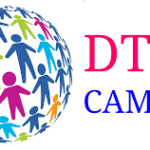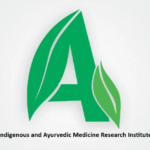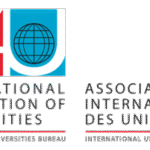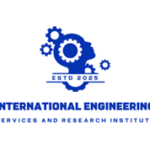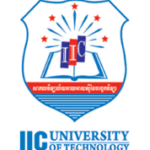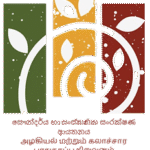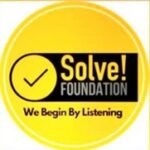🔹 About Us – Who We Are
Partnering to Build a World Where Every Child Thrives
At the International Early Childhood Education Development and Research Institute (IECEDRI), we believe that the early years of a child’s life lay the foundation for lifelong learning, development, and well-being. Our vision is to create a world where every child, regardless of their background or circumstances, has access to inclusive, high-quality early education that nurtures their full potential.
Founded in 2015 in Sri Lanka, IECEDRI was established by a group of passionate educators, researchers, and policymakers who recognized the urgent need to transform early childhood education systems in underserved and diverse communities. Over the years, we have grown into a leading institution in South Asia, collaborating with international organizations, governments, and academic institutions to promote equity, innovation, and excellence in early learning.
Our work spans interdisciplinary research, policy advocacy, teacher training, and community engagement. Through evidence-based practices and global partnerships, we aim to close the gap between research, policy, and practice — empowering stakeholders at all levels to deliver sustainable and impactful solutions for children and families.
We are proud of our journey so far, having trained thousands of early childhood professionals, influenced national education reforms, and contributed to international discourse on child rights and education. As we continue to expand our reach, we remain committed to fostering environments where every child can thrive, learn, and dream of a brighter future.
By working together — educators, families, policymakers, and communities — we can create lasting change and ensure that no child is left behind.
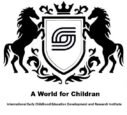
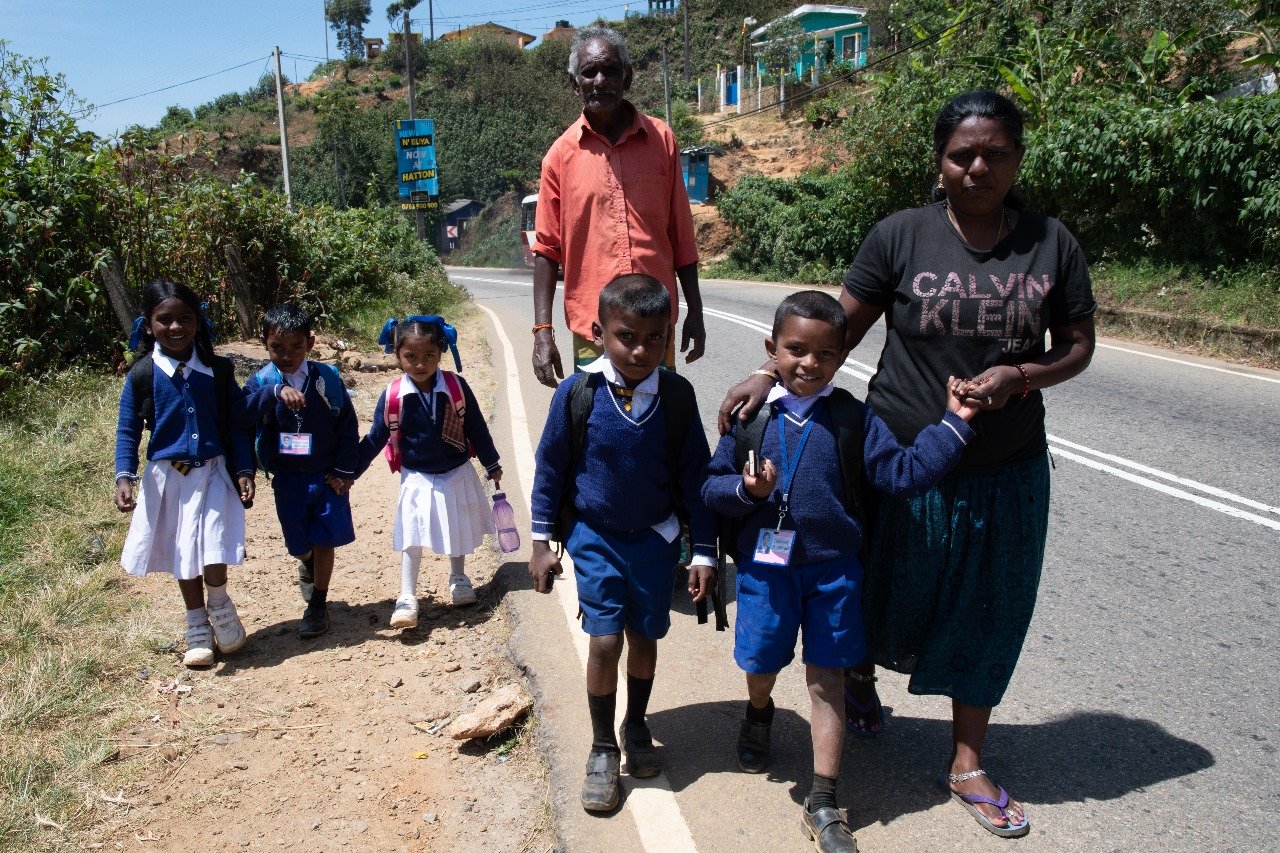
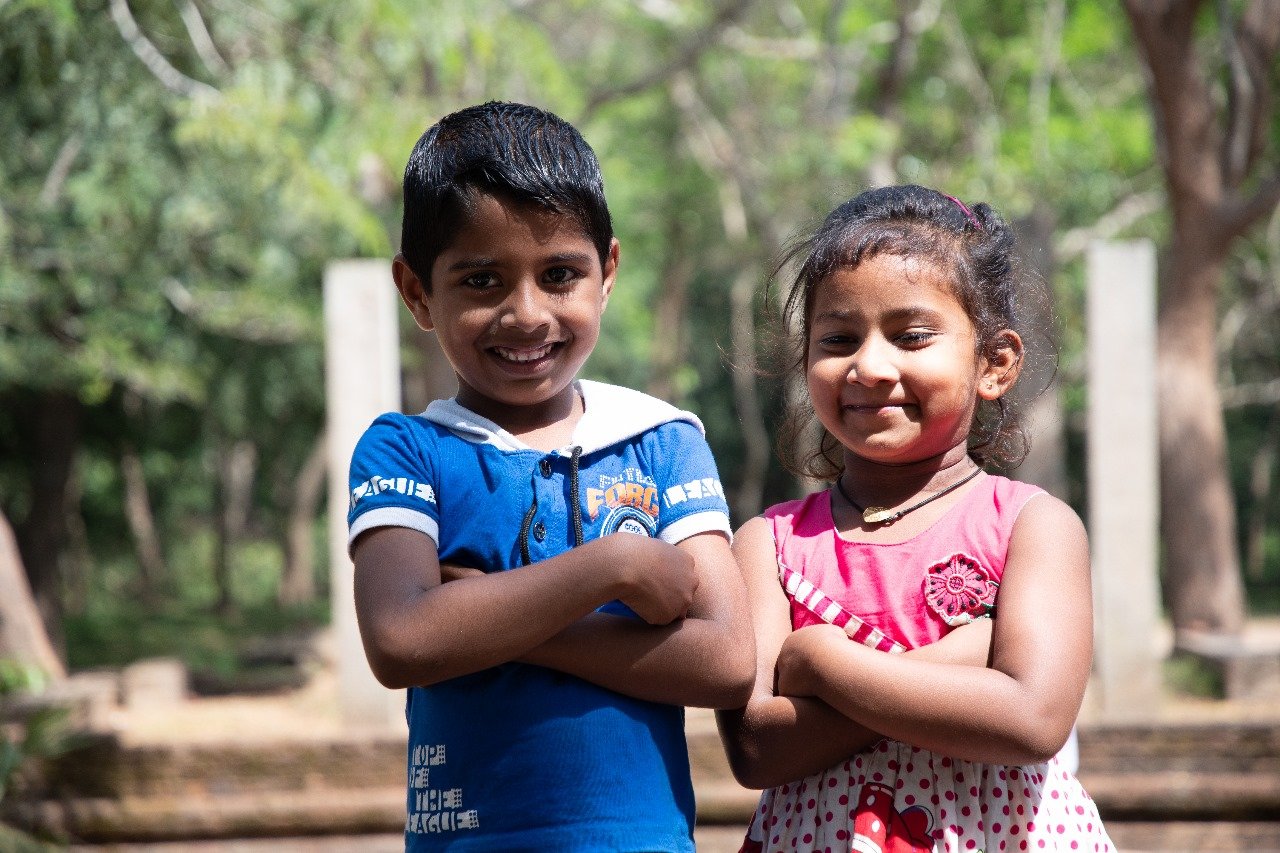
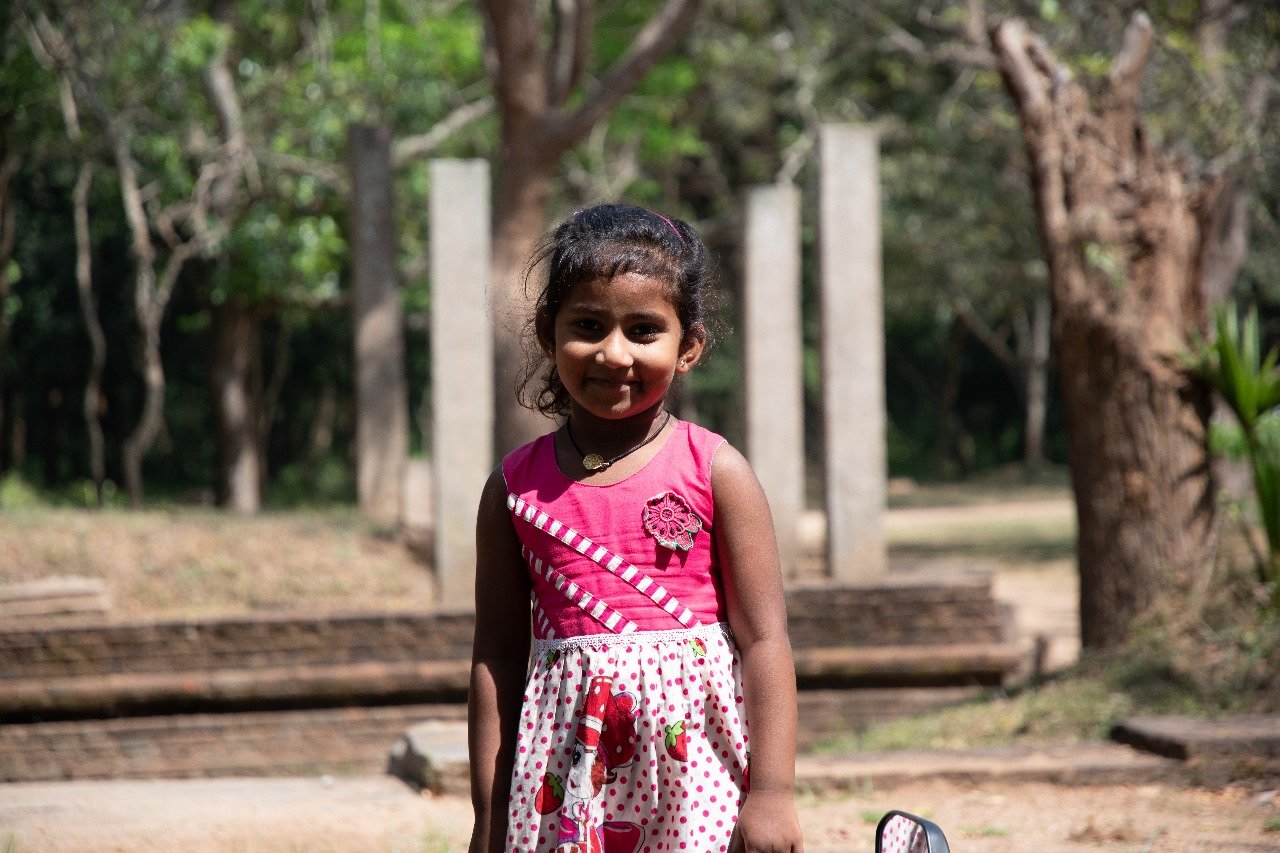
Our Approach
Our History
The International Early Childhood Education Development and Research Institute (IECEDRI) was established in 2015 in Sri Lanka with a vision to transform early childhood education through evidence-based research and inclusive practice.
Recognizing the critical importance of the early years in shaping a child’s development, the Institute was founded by a group of educators, researchers, and policymakers committed to advancing high-quality early learning opportunities for all children, particularly in under-resourced and diverse communities.
Over the past decade, IECEDRI has grown into a leading institution in the region, known for its interdisciplinary research, capacity-building programs, and policy advocacy. The Institute has led multiple national and international research projects, collaborated with global organizations such as KONOYUBI, OWOP, and regional universities, and provided training for thousands of early childhood professionals across Sri Lanka and South Asia.
Through partnerships with government ministries, NGOs, and educational institutions, IECEDRI has contributed to the development of national early childhood education standards, curriculum reforms, and the professionalization of the early childhood workforce.
As IECEDRI marks 10 years of impactful work, it continues to serve as a hub for innovation, collaboration, and knowledge-sharing—advancing its mission to ensure that every child, regardless of background, has the best possible start in life.
01.
— Our Mission
To advance the quality, equity, and accessibility of early childhood education worldwide through innovative research, policy development, and professional collaboration. We strive to empower educators and uplift communities through knowledge and action
02.
— Our Vision
A world where every child, regardless of background, has access to high-quality, inclusive early education that nurtures their full potential and lays the foundation for lifelong learning, well-being, and social justice.
03.
— Our Story
ECEDRI’s story began with a shared dream — to create a world where no child is left behind. In 2015, a group of passionate educators, researchers, and advocates came together with one mission: to transform early childhood education through innovation and inclusivity.
What We Do
Early Learning Programs
Develop and promote inclusive, high-quality early childhood education initiatives.
Educational Research
Conduct interdisciplinary studies to improve policy and practice in early education.
Teacher Training
Empower educators with tools and knowledge for effective, child-centered teaching.
Global Partnerships
Collaborate with NGOs, universities, and ministries to scale impact regionally and globally.
Policy & Advocacy
Support governments and stakeholders to develop inclusive, evidence‑based policies.
Community Engagement
Raise awareness and mobilize families and communities around early childhood priorities.
Leadership & Team

Rasith Wickramasinghe

Mahilini Mayuran
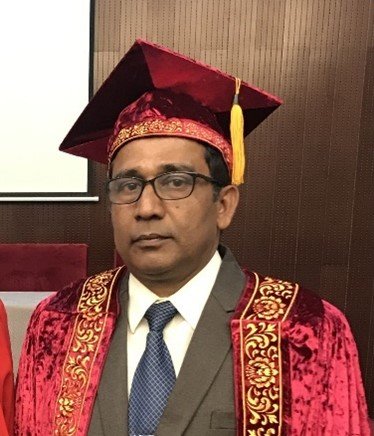
Dr. Jayalath Ilangakoon

Ruwan Kukulevithana
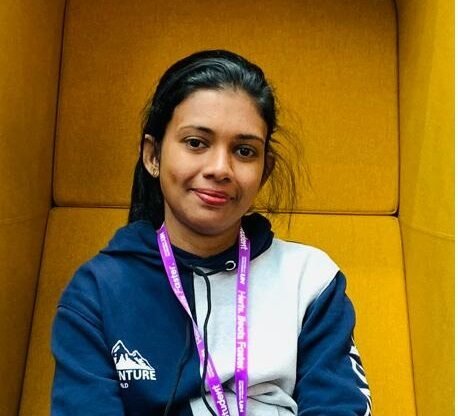
S. M. D. BUDDHIKA SENARATHNA

Bawadharani Rajasingham
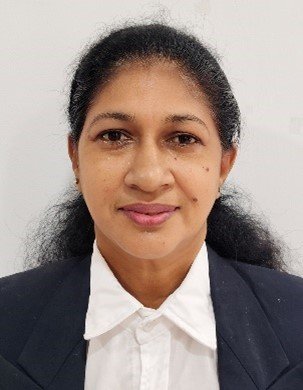
Kumudu Gunasinghe
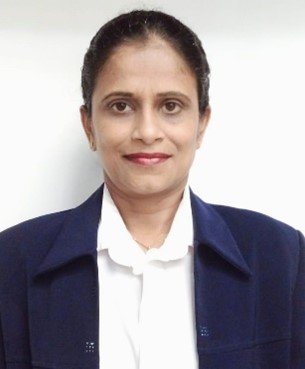
Aruni Jayathilake

Dr. Nilanga Weerasinghe

Ariyuki Ito
博多工業高等学校 卒業

Dr. Renshi Clement A.G. De Zoysa
President – Sri Lanka Shitokai Karate Federation

Dr. Chandrika Ilangakoon
Nippon International School
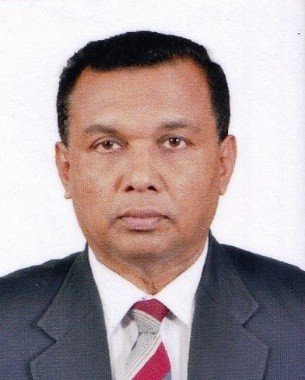
T K GUNATILAKE

Dr. Ruchira de Silva

Ms. Shoko Zama Enomoto
J.F. Oberlin University

Julieana Philip
Ongoing Projects (Research)
🧠 Child Development and Learning
- Understanding Child Development Milestones (0–6 years)
- The Science of Early Brain Development
- Developmentally Appropriate Practices (DAP) in the Preschool Classroom
- Social and Emotional Development in Young Children
- Executive Function and Self-Regulation in the Early Years
🎓 Curriculum and Pedagogy
- Play-Based and Inquiry-Based Learning Strategies
- Designing Integrated and Thematic Curriculum for Preschool
- Emergent Literacy and Early Numeracy Instruction
- STEM for Preschoolers: Hands-on, Minds-on Learning
- Creating Culturally Responsive Classrooms
📖 Assessment and Observation
- Child Observation Techniques for Teachers
- Formative Assessment Tools in Early Childhood Settings
- Using Portfolios and Learning Stories to Track Progress
- Identifying Early Signs of Developmental Delays
🧑🏫 Classroom Management and Environment Design
- Creating Safe, Stimulating, and Inclusive Learning Spaces
- Positive Guidance and Behavior Management Techniques
- Daily Routines and Transitions in Preschool
- Designing Learning Centers and Interest Areas
🏠 Family and Community Engagement
- Building Partnerships with Families and Caregivers
- Effective Parent-Teacher Communication Techniques
- Home Learning Support and School Readiness
- Engaging Fathers and Extended Families in Early Learning
🌍 Inclusion, Diversity, and Equity
- Inclusive Education for Children with Special Needs
- Anti-Bias Education in the Early Years
- Teaching in Multilingual and Multicultural Classrooms
- Supporting Refugee and Migrant Children in Preschool
💻 Technology and Innovation
- Using Digital Tools to Enhance Learning
- Safe and Purposeful Screen Use in the Early Years
- Digital Documentation of Learning and Communication with Parents
- Blended Learning Approaches in Early Childhood Education
🌱 Teacher Well-being and Professionalism
- Reflective Practice and Continuous Professional Development
- Stress Management and Self-Care for Early Childhood Educators
- Building Professional Learning Communities (PLCs)
- Ethics and Professional Conduct in ECE
⚖️ Policy and Advocacy
- Understanding Early Childhood Education Policies and Standards
- The Role of Preschool Teachers in Educational Advocacy
- Child Rights and Protection in Early Childhood Settings
📚 Publications & Reports
📘 Research Methods & Ethics
The International Early Childhood Education Development and Research Institute (IECEDRI) recommends and promotes several research methods and ethical principles for conducting studies in early childhood contexts.
🔬 I. Research Methods Used by IECEDRI
1. Quantitative Research Methods
-
Surveys and Questionnaires
- For large-scale data collection from teachers, parents, or administrators.
-
Standardized Assessments
- To evaluate cognitive, language, or motor development in children.
-
Experimental and Quasi-Experimental Designs
- For impact evaluations of early interventions or teacher training programs.
-
Longitudinal Studies
- To track children's development or the impact of early education over time.
2. Qualitative Research Methods
-
Ethnographic Fieldwork
- To study natural behavior and cultural practices in preschool settings.
-
Interviews and Focus Groups
- With educators, parents, or children to gather in-depth insights.
-
Participant Observation
- To capture real-time classroom interactions and dynamics.
-
Case Studies
- For deep exploration of particular schools, children, or community programs.
3. Mixed-Methods Approaches
-
Triangulation of Data
- Combining survey results, classroom observations, and interviews to strengthen findings.
-
Sequential Designs
- Conducting a qualitative study to design a quantitative instrument, or vice versa.
4. Innovative and Participatory Approaches
-
Child-Centered Research
- Using drawings, storytelling, or play to understand young children’s perspectives.
-
Action Research
- Teachers and researchers co-investigate to improve classroom practices.
-
Community-Based Participatory Research (CBPR)
- Involving parents and local stakeholders in research design and interpretation.
⚖️ II. Research Ethics Followed by IECEDRI
1. Informed Consent and Assent
- Obtain written informed consent from parents or guardians.
- Seek age-appropriate assent from young children (e.g., through verbal agreement or visual cues).
2. Confidentiality and Privacy
- Ensure data is anonymized or de-identified.
- Use secure data storage systems and respect participants' privacy rights.
3. Voluntary Participation
- Participation must be voluntary, with the right to withdraw at any time without consequences.
4. Child Protection and Safety
- Follow child safeguarding protocols to protect children from harm.
- Researchers should undergo background checks and child protection training.
5. Non-Maleficence and Beneficence
- Avoid physical or psychological harm.
- Ensure research benefits outweigh any risks to participants.
6. Cultural Sensitivity and Respect
- Design and conduct research that is culturally relevant and respectful of local customs and languages.
- Engage local stakeholders in the research process.
7. Ethics Review and Approval
- Submit all research proposals for review by a recognized Ethics Review Board (ERB) or Institutional Review Board (IRB).
- Reassess protocols if methods or participant risks change during the study.
🤝 Collaborate With Us
Are you passionate about advancing early childhood education?
We welcome partnerships with researchers, universities, NGOs, policymakers, and advocates worldwide.
Join IECEDRI to co-create impactful research, drive innovation, and support quality early learning for all children.
Educator Development (Programs)
The International Early Childhood Education Development and Research Institute (IECEDRI) has a broad scope for educator development, encompassing activities to improve knowledge, skills, well-being, and professionalism of early childhood educators.
1. Pre-Service Teacher Education
- Curriculum design for teacher training colleges
- Accreditation of pre-service ECE programs
- Partnerships with universities for research and practicum integration
- Development of teacher qualification frameworks
-
Colombo District: Kaduwela, Ranala
📅 21 June 2025 -
Kandy District: Sri Pushpadana Hall, Kandy City
📅 19 July 2025
2. In-Service Professional Development
- Design and delivery of CPD (Continuous Professional Development) programs
- Short courses and micro-credentials (e.g., online and in-person)
- Workshops, webinars, and summer institutes
- Specialized training in inclusive education, trauma-informed care, STEM, etc.
3. Mentorship and Coaching
- Developing a national/institutional mentorship framework
- Training and certification of ECE mentors and coaches
- Ongoing support systems for novice teachers
- Peer coaching models and reflection cycles
4. Teacher Leadership and Career Pathways
- Creating professional growth ladders and leadership roles
- Action research and classroom-based innovation projects
- Recognition programs (e.g., teacher excellence awards)
- Leadership training for head teachers and coordinators
5. Reflective Practice and Research Engagement
- Training educators to use data and observation in reflective practice
- Promoting practitioner-led research and action research
- Encouraging publication of case studies and field experiences
- Facilitating teacher learning communities (TLCs)
6. Digital Literacy and Innovation
- Capacity-building for using ICT in early learning settings
- Training on digital pedagogy and digital documentation tools
- Integration of EdTech in ECE classrooms
- Online teaching skills for hybrid/blended learning
7. Well-being and Mental Health Support
- Workshops on educator stress management and resilience
- Creating support networks for emotional and mental wellness
- Workplace wellness initiatives in preschools and ECE centers
- Advocating for better working conditions and professional respect
8. Policy, Standards, and Advocacy Training
- Educator training in national/international ECE policies
- Understanding teacher codes of ethics and professional standards
- Building advocacy skills to influence education policy
- Empowering educators to participate in policy dialogue and system reform
9. Inclusive Education and Diversity Competence
- Training on differentiated instruction for diverse learners
- Competence in teaching children with special needs
- Culturally and linguistically responsive teaching
- Anti-bias and gender-inclusive pedagogies
10. Monitoring and Evaluation of Educator Impact
- Developing teacher appraisal and performance evaluation tools
- Supporting the use of classroom quality tools (e.g., CLASS, ECERS)
- Research on teacher effectiveness and its link to child outcomes
- Documenting success stories and scaling best practices
Policy & Advocacy
IECEDRI is committed to advancing early childhood education by informing policy, driving advocacy, and building partnerships to create systemic change for children and families.
- Conducting policy research and making recommendations for national ECE standards
- Advocating for equitable funding and access to quality early learning for all
- Engaging with government agencies, NGOs, and community leaders
- Organizing policy briefs, roundtables, and awareness campaigns
- Supporting frameworks for child rights and protection
- Promoting evidence-based policy and decision making in early childhood education
Connect With Us
Global Outreach
IECEDRI connects with partners and professionals worldwide to share knowledge, build research alliances, and promote excellence in early childhood education across borders.
- International research collaborations and networks
- Hosting and participating in global ECE conferences and forums
- Cross-cultural educator exchange and development programs
- Supporting policy and practice in diverse global contexts
- Sharing resources, toolkits, and innovations worldwide
- 🌏 KONOYUBI (Japan)
- 🌏 DTPE CAMPUS
- 🌏 OWOP
- 🌏 International Institute of Cosmetology Sciences
- 🌏 Agricultural Engineering Research and Development Institute
Fellowships & Internships
To promote equity, innovation, and capacity building in early childhood education globally, IECEDRI offers scholarships and internships to diverse, high-potential groups in the field.
1. Early Childhood Educators from Underserved and Marginalized Communities
- Rural, remote, or low-income areas
- Indigenous communities
- Refugee and displaced populations
- Post-conflict or fragile settings
2. Young Researchers and Graduate Students in ECE Fields
- Master's and Ph.D. candidates in education, child development, psychology, or social work
- Early-career scholars conducting ECE-related research
3. Pre-Service Teachers and Student Interns in Teacher Training Programs
- Students in colleges or universities pursuing early childhood education degrees
- Candidates seeking practicum or field placement opportunities
4. Educators with Disabilities
- Teachers with physical, sensory, or learning disabilities who are working or studying in the field of ECE
5. Women in Leadership and Management Roles in ECE
- Emerging leaders from early childhood centers, ministries, or NGOs
- Women aspiring to be ECE policymakers or researchers
6. Educators Working in Crisis-Affected or Emergency Settings
- Professionals supporting children in refugee camps, war zones, or natural disaster areas
7. Internationals from Low- and Middle-Income Countries (LMICs)
- Scholars, educators, or government officials from LMICs with limited access to global training opportunities
8. Policy Fellows and Government Technical Staff in ECE
- Professionals in ministries or agencies tasked with ECE curriculum, assessment, or policy development
9. Professionals Transitioning into ECE from Other Sectors
- Social workers, health professionals, or educationists moving into early childhood roles
10. Educators Specializing in Inclusive Education or Special Needs
- Teachers or researchers focused on children with disabilities, learning difficulties, or developmental delays
Capacity Building Workshops
IECEDRI offers a series of strategic capacity building workshops tailored to different stakeholders in the early childhood ecosystem. These workshops enhance skills, leadership, policy awareness, and research at local, national, and international levels.
🧑🏫 1. For Early Childhood Educators and Caregivers
- Play-Based and Inquiry-Based Learning
- Positive Discipline and Classroom Management
- Inclusive Teaching for Children with Special Needs
- Culturally Responsive and Anti-Bias Education
- Supporting Early Literacy and Numeracy Development
- Digital Tools for Early Childhood Learning
- Socio-Emotional Learning in the Early Years
🎓 2. For Pre-Service Teachers and Interns
- Introduction to Child Development and Learning Theories
- Reflective Practice and Professional Ethics in ECE
- Child Observation and Assessment Techniques
- Practicum Preparation and Documentation Skills
- Working with Families and Communities
🧠 3. For School Leaders and Administrators
- Instructional Leadership in Early Childhood Settings
- Leading Inclusive and Equitable Early Childhood Programs
- Data-Driven Decision Making and Classroom Monitoring
- Staff Support, Mentoring, and Professional Growth
- Creating Safe, Nurturing, and Child-Centered Environments
🧪 4. For Researchers and Academics
- Qualitative and Quantitative Research Methods in ECE
- Child-Friendly Research Ethics and Protocols
- Action Research and Teacher-Led Inquiry
- Research-to-Policy Translation Techniques
- Writing for Publication in ECE Journals
🏛️ 5. For Policymakers and Government Officials
- Designing and Evaluating National ECE Policies
- Financing Models and Costing of Early Childhood Programs
- ECE Quality Standards and Monitoring Frameworks
- Cross-Sector Collaboration in Early Childhood Development
- Early Childhood Rights, Equity, and Global Commitments (e.g., SDGs, NCF, ECD Targets)
🏘️ 6. For Parents, Families, and Community Leaders
- Parenting for Early Learning and School Readiness
- Nutrition, Health, and Safety for Young Children
- Understanding Developmental Milestones at Home
- Father Engagement and Positive Parenting Practices
- Community-Based Early Learning Initiatives
🌍 7. For NGO Leaders and ECE Program Implementers
- Program Design and Curriculum Adaptation for Diverse Contexts
- Monitoring, Evaluation, and Learning (MEL) in ECE Projects
- Fundraising and Grant Writing for ECE Initiatives
- Scaling Innovations in Early Childhood Services
- Training of Trainers (ToT) for Local ECE Facilitators
- Interactive and practical with real-world classroom case studies
- Modular format (e.g., 1-day, 3-day, week-long workshops)
- Hybrid delivery (online and in-person options)
- Accreditation or certification for professional recognition
- Follow-up coaching or mentoring to support implementation
Online Courses (Edu. & training)
IECEDRI offers a wide range of online courses to suit the diverse needs of practitioners, students, policymakers, and caregivers in the Early Childhood Education (ECE) ecosystem. These courses are modular, flexible, and globally accessible.
🎓 A. Foundational Courses in Early Childhood Education
- Introduction to Early Childhood Education and Development
- Understanding Child Development: Birth to 8 Years
- Principles of Play-Based and Inquiry-Based Learning
- Learning Theories in Early Childhood Education
- Developmentally Appropriate Practices (DAP) in ECE
🧑🏫 B. Professional Practice for Educators
- Classroom Management in Early Learning Environments
- Positive Behavior Guidance and Social-Emotional Learning
- Child Observation, Assessment, and Documentation
- Inclusive Practices for Children with Special Needs
- Designing and Managing Learning Centers in Preschool
📖 C. Curriculum, Literacy, and Learning Approaches
- Early Literacy and Language Development
- Foundations of Early Mathematics and STEM for Preschoolers
- Arts, Music, and Creativity in Early Childhood
- Outdoor and Nature-Based Learning
- Multilingual Education and Language Policy in ECE
🌐 D. Equity, Diversity, and Inclusion
- Anti-Bias Education in the Early Years
- Gender Equity and Inclusion in Early Childhood Settings
- Working with Refugee, Migrant, and Displaced Children
- Culturally Responsive Pedagogy in ECE
- Teaching in Multilingual and Multicultural Classrooms
💻 E. Technology and Innovation in ECE
- Digital Tools and Apps for Early Learning
- Blended and Online Teaching in ECE
- Digital Storytelling for Young Learners
- EdTech for Inclusive and Differentiated Instruction
- Using Technology for Assessment and Communication with Families
🏛️ F. Policy, Leadership, and Advocacy
- Global ECE Policy Frameworks and SDG Alignment
- Leading Early Childhood Programs and Centers
- ECE Financing and Program Planning
- Policy Advocacy and System Strengthening in ECE
- Monitoring and Evaluation in Early Childhood Programs
🧠 G. Specialized and Advanced Topics
- Neuroscience and the Developing Brain
- Trauma-Informed Care in Early Childhood Education
- Supporting Children with Autism and ADHD
- Interdisciplinary Approaches: ECE, Health, and Nutrition
- Early Childhood Education in Emergencies and Crisis Contexts
🏠 H. Family and Community Engagement
- Building Strong Home-School Partnerships
- Empowering Parents as Co-Educators
- Community-Based Early Childhood Education Models
- Supporting Learning at Home for School Readiness
- Father Involvement and Family Well-being
🎖️ Additional Options
- Micro-Certifications (e.g., “Certificate in Inclusive Practices for ECE”)
- Self-paced vs Instructor-led formats
- Language options for broader access (e.g., English, French, Swahili, Arabic)
- Gamified or interactive elements for deeper engagement
🏅 Professional Certifications
Certificates and professional qualifications available for download or upload.
📚 Learning Modules
Learning modules and course materials available for upload/download.
Scholarships & Funding
IECEDRI’s scholarships, grants, and program funding are made possible through the generous support of multiple sources, ensuring educational opportunities for children and educators in need.
- Private donations from individuals
- Donations from non-governmental organizations (NGOs)
- Charity program proceeds
- Course fees and income from educational programs
- Member funds and contributions
- Other special donations and grants
Contact us for information on scholarships, funding opportunities, or to make a donation.
Contact Us
📚 Open Access Library (resources)
Browse and access a curated collection of open-access research articles, reports, and educational resources for early childhood education.
🧰 Toolkits & Guides
IECEDRI develops and offers a range of practical, evidence-based toolkits and guidelines for educators, caregivers, policymakers, and program implementers—adaptable for local contexts and real-world impact.
🧑🏫 A. Teaching and Classroom Practice
-
Early Learning Curriculum Implementation Toolkit
✔ Lesson planning templates, activity guides, age-appropriate themes
✔ Adaptable for various cultural and linguistic contexts -
Play-Based Learning Toolkit
✔ Structured play ideas, free play materials, assessment strategies
✔ Indoor, outdoor, and imaginative play -
Inclusive Education Resource Toolkit
✔ Strategies for supporting children with disabilities and diverse needs
✔ Universal Design for Learning (UDL) adaptations -
Teacher's Guide to Observation and Assessment in ECE
✔ Observation checklists, portfolios, learning story templates
✔ Formative assessment methods -
Guidelines for Creating Child-Friendly Learning Environments
✔ Space design, safety standards, sensory zones, inclusive materials
✔ Low-cost and DIY classroom setup ideas
📖 B. Early Learning and Curriculum Support
-
Early Literacy and Language Development Toolkit
✔ Phonemic awareness games, storytelling, home-language support
✔ Multilingual education approaches -
STEM in the Early Years Toolkit
✔ Science experiments, math games, inquiry-based projects
✔ Local material use & gender-sensitive approaches -
Nature-Based and Outdoor Learning Guidelines
✔ Activities for environmental awareness, ecological learning
✔ Safety checklists, weather-adaptive planning
🧠 C. Child Development and Well-Being
-
Child Development Milestones Toolkit
✔ Visual guides, developmental screening tools
✔ Covers cognitive, emotional, motor, language development -
Social and Emotional Learning (SEL) Toolkit
✔ Emotional regulation activities, routines, teacher strategies
✔ Empathy, resilience, collaboration -
Trauma-Informed Care Guidelines for Early Childhood Settings
✔ Support for children exposed to adversity/crisis
✔ Staff training modules, care protocols
🏠 D. Family and Community Engagement
-
Parent Engagement Toolkit for ECE Centers
✔ Home learning activities, parent-teacher conference templates
✔ Multilingual communication materials -
Community-Based Early Learning Program Guide
✔ Models for community-led preschools, volunteer training
✔ Involving local leaders, traditional knowledge -
Father Involvement in Early Learning Toolkit
✔ Strategies to engage male caregivers
✔ Addressing gender norms, cultural barriers
🏛️ E. Leadership, Policy, and Program Implementation
-
ECE Center Management and Leadership Toolkit
✔ Staff supervision tools, budgeting, quality assurance
✔ Emergency preparedness, child protection -
Monitoring and Evaluation Toolkit for ECE Programs
✔ Indicators, data tools, reporting templates
✔ Aligned with SDG 4.2, national ECE goals -
Guidelines for Developing National ECE Curricula and Standards
✔ Frameworks, curriculum mapping, consultative processes
✔ Inclusivity, equity, global best practices -
Policy Brief Development Toolkit for ECE Advocates
✔ How to write and present evidence-based policy briefs
✔ Tailored for NGOs, civil society, ministries
🌐 F. Digital Learning and Technology Integration
-
Technology Integration Toolkit for Early Learning
✔ Safe, age-appropriate tech use strategies
✔ App reviews, screen-time guidelines, family resources -
Digital Documentation and Communication Toolkit
✔ Learning portfolios, family newsletters, teacher-parent apps
✔ Tools for tracking child development digitally
- Printable PDFs, editable Word files, and interactive online versions
- Visuals (infographics, icons, illustrations) for ease of use
- Available in multiple languages (English, French, Swahili, Arabic)
- Aligned with national/international frameworks (e.g., NCF, SDGs, UNICEF, UNESCO)
🎥 Multimedia (Videos, Podcasts)
Explore a collection of educational videos, webinars, and podcasts to support early childhood education.
📄 Case Studies
Read impactful case studies that highlight successful practices, challenges, and innovations in early childhood education.
🏫 Classroom Resources
Download ready-to-use lesson plans, activity sheets, and other practical resources for your classroom.
📊 Annual Reports (Publications)
Access IECEDRI’s annual reports for in-depth insights into our activities, impact, and financial statements.
📄 Research Papers
Browse original research papers and academic publications produced by IECEDRI and its collaborators.
📰 Newsletters
Stay updated with IECEDRI’s newsletters featuring news, project highlights, and upcoming opportunities.
📚 Journal Access
Access partner journals and peer-reviewed publications supported by IECEDRI (if available).
News & Media
Stay updated with IECEDRI’s latest press releases, media features, expert insights, and social updates.
📢 Press Releases
No press releases available yet.
📝 Blog & Insights
No blog posts yet.
📰 In the Media
No media mentions yet.
🔗 Social Media Feed
Follow us on social media for real-time news, insights, and community stories:
📅 Upcoming Events
Stay tuned for upcoming seminars, workshops, and conferences hosted by IECEDRI.
📝 Call for Papers
IECEDRI invites researchers, educators, and practitioners to submit papers for our upcoming conferences and journals.
🎤 Conferences & Webinars
Access information about IECEDRI's past and upcoming conferences, webinars, and symposiums in the field of early childhood education.
📂 Past Event Archive
Browse archives of previous events, workshops, and research seminars organized by IECEDRI.
Get Involved
Support our mission and become part of the IECEDRI community. Explore the many ways you can get involved!
💚 Donate
Make a difference in the lives of children and educators by contributing to IECEDRI’s programs, scholarships, and community initiatives.
Donate Now🤝 Volunteer
Join our volunteer network and help deliver impactful educational programs, events, and community outreach—on site or remotely!
Become a Volunteer🌐 Join Our Network
Connect with educators, researchers, and advocates across the globe. Get updates, share ideas, and participate in professional learning communities.
Join Now🤝 Partnership Opportunities
Partner with IECEDRI to create lasting change—collaborate on research, training, or outreach initiatives at local, national, or international levels.
Partner With Us🤝 Partners & Collaborators
